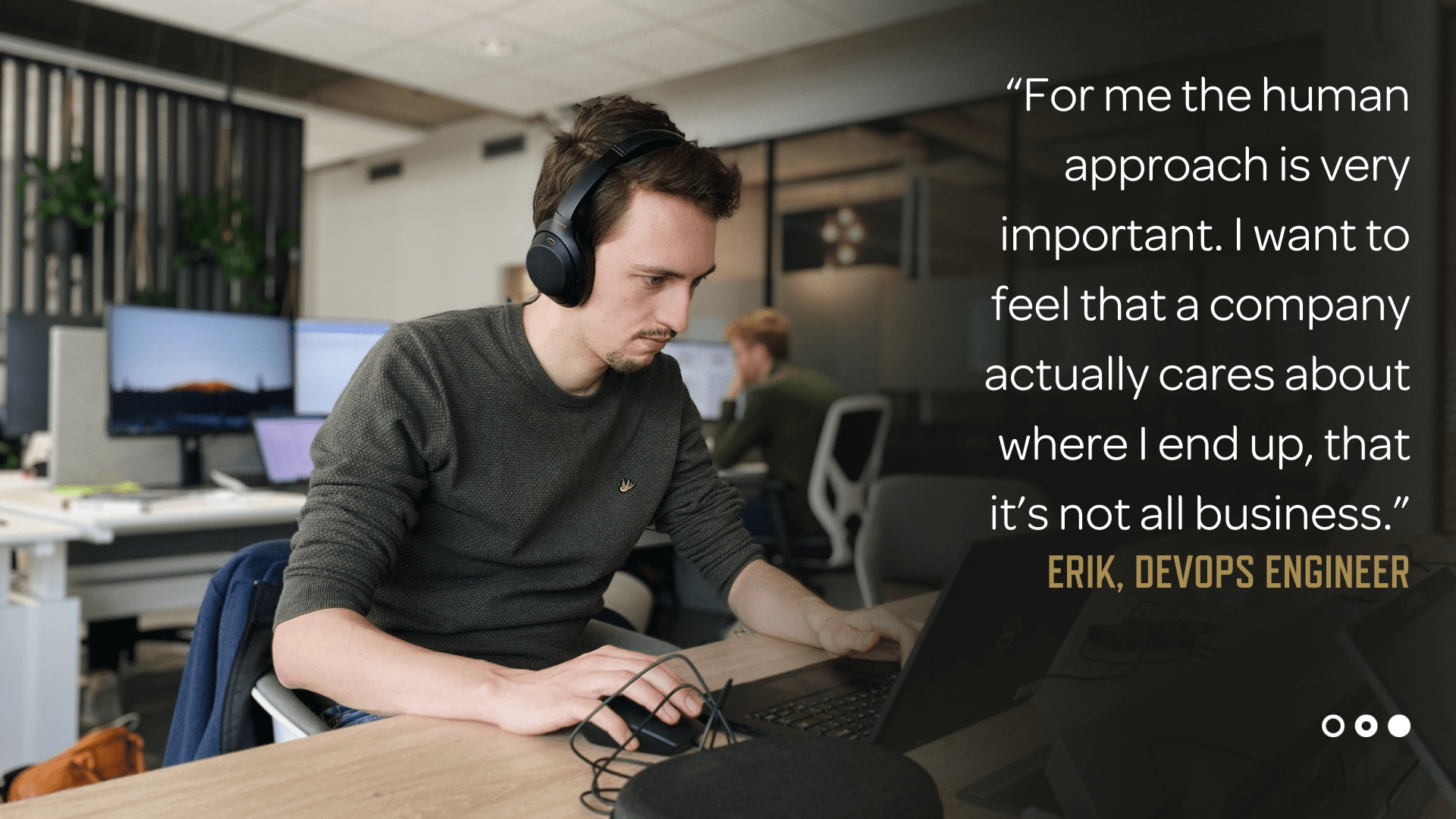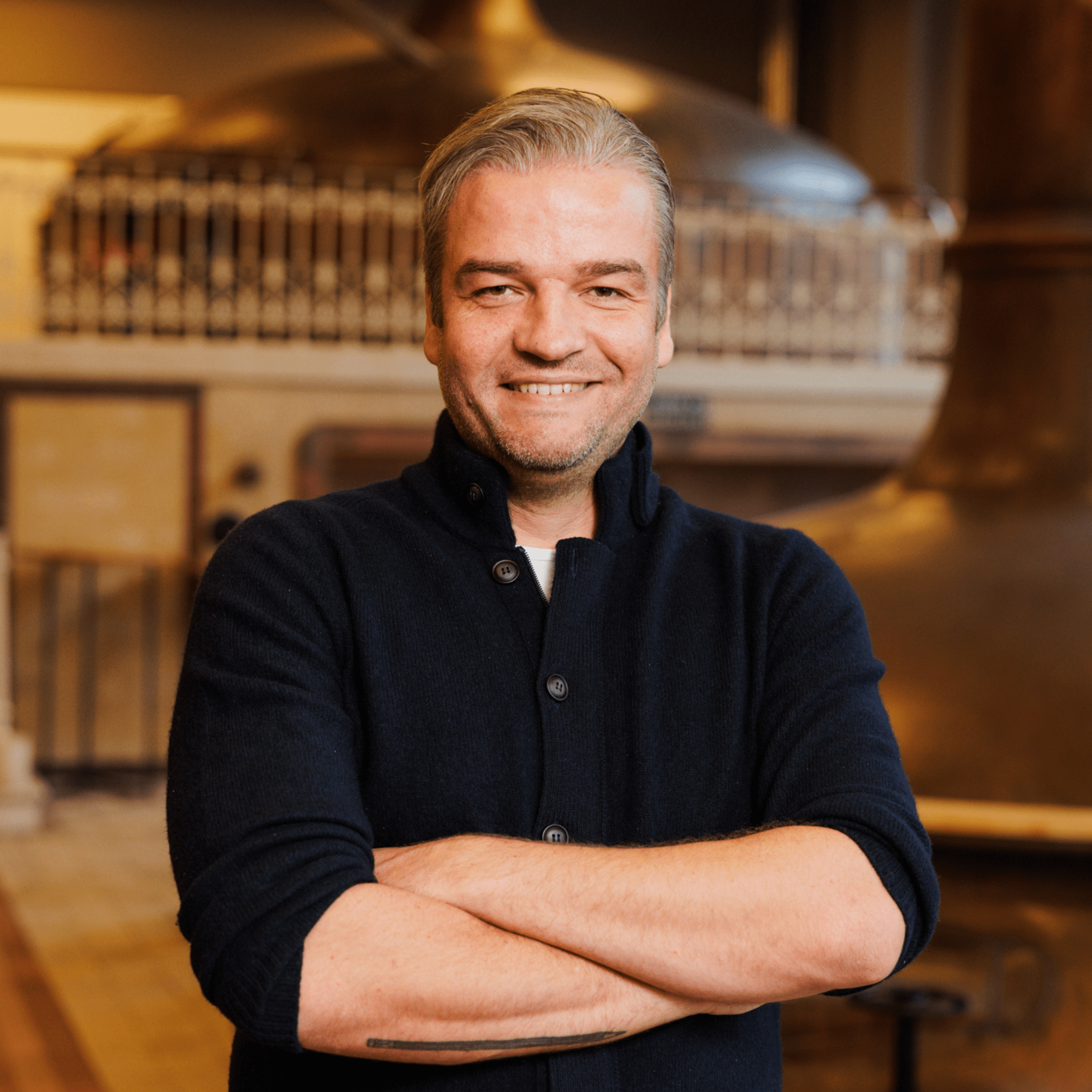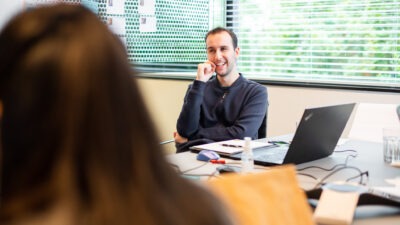How Erik’s Master in A.I. landed him a job as a DevOps Engineer
on 21 June 2022 for GraduatesHow does a psychology student end up as a DevOps Engineer? Actually, it’s not as far of a stretch as you might think. Erik Lokhorst told us all about this trajectory and his first experiences as an Exellyst.
Erik’s specs
- 25 years old
- Lives in Utrecht
- Completed his Master’s in Artificial Intelligence a few months ago
- Exellyst & DevOps Engineer at APG Asset Management
- A guy with many hobbies: bouldering, playing chess, watching a LOT of sports on tv, learning Spanish, gaming or watching streams on Twitch and spending time with family and friends. But not all at the same time.
Hi Erik, you just graduated a few months ago. Can you tell us a bit about your academic career?
In high school I particularly enjoyed the exact science subjects: biology, chemistry, mathematics, etc. So I wanted to continue along the same lines at university. I started my studies in Computer Science, but actually I quit after only a few months. As a gamer and an introvert, I didn’t have much of a social life in school. So when I started university, I was determined to change that. That’s why I joined a student association as well. The only problem was that my fellow Computer Science students were all introverts like me, which was not improving my social skills. I decided it wasn’t for me, and I took on another challenge.

Wow, okay. That’s a big decision. And what did you decide to do after that?
For the rest of the year, I got a job filling shelves at a store where I had worked previously as a student. It was actually a nice change. Since I had some experience and was one of only a few people working 40 hours a week, I got a lot of responsibilities there. I also signed up for educational guidance, to get a fresh and objective perspective on which line of studies would actually suit me best. That’s how Psychology came up. I had never considered it myself, because it’s not an exact science, but it actually aligned with a lot of my interests, like how the brain works and the way people think.
So how did you go from there to Artificial Intelligence?
After my bachelor’s, I was at a crossroads again. I didn’t want to go further into the research side of psychology. I started to expand my horizons to see what else was out there, and that’s how I came across the Master’s in Artificial Intelligence. I didn’t know much about it at the time, but as soon as I started reading about it, it became clear that this was right up my alley. A big part of the Master’s in AI is programming, but there is also a lot of theory. How do you go about artificial intelligence and machine learning? The inspiration has to come from somewhere, and as it turns out, the way people learn things is actually a big inspiration for how intelligent learning or machine learning is set up.
Dit bericht op Instagram bekijken
You mention a lot of programming. How did you manage that, after a bachelor’s education with barely an IT component?
I did have to do a pre-master before I could start. This is where I learned a lot of the technical skills I needed for AI, like programming.
And can you tell us something about your master’s thesis?
I did my thesis on word embeddings for the Dutch medical domain. Word embeddings are used in Natural Language Processing (NLP): the part of AI dealing with language. As computers only understand numbers, each word that is fed into a machine learning model has to be converted into a number. The models that allocate words to word embeddings already exist for the general language. They are even developed in such a way, that they add relations to the words. However, those models are usually trained on available language; think of Wikipedia pages. As you might imagine, only a small part of the medical domain is covered on online Dutch webpages, so those available models don’t perform well on the medical domain. That’s what I looked into: how can we create models for the Dutch medical domain that are usable or how can we modify existing models to be usable? Once this Dutch medical data can be exploited by machine learning models, analysis, medical costs and eventually treatment could improve a lot.
Interesting stuff! How did you end up at Exellys?
You guys popped up on LinkedIn when I was searching for companies with specific parameters. And when I reached out, your approach really stood out to me. I find that you can tell a lot about a company from just that first interaction. For me the human approach is very important. I want to feel that a company actually cares about where I end up, that it’s not all business. The conversations I had with Bonne and later with Penny were all very relaxed and positive. That’s something I liked a lot about Exellys.
What kind of job were you looking for?
I wasn’t really looking for any position in particular, the main criterium for me was that I wanted to acquire more knowledge and skills. One thing that I’ve been interested in for a while now is cloud computing. I personally believe the cloud is the future. I think a lot of major companies will have to migrate their data to the cloud, because I believe more and more tools and applications will be designed exclusively for cloud environments.
You recently started working as a DevOps Engineer for APG Asset Management (AM). What does your job entail exactly?
There are several DevOps teams within APG AM. I’m part of the Integration team. The closely related API team makes sure that all applications (basically the infrastructure behind several trading systems) within AM can communicate with each other. What the Integration team then does, is making sure that all the data from these communicating applications are connected to each other in the right way. For example: we receive a lot of Swift messages (something that will definitely ring a bell if you’ve been watching the news lately) which we combine with other messages to get insights in trading traffic to support our front-office. They can then check where things might go wrong.
One part of my job is to write scripts in Visual Studio, so quite technical. The other main part of my job is more exploratory: investigating the technical possibilities of a cloud environment. It’s the combination of both, that I really enjoy.
And what do you believe is the added value of being an Exellyst?
For me the coaching and training at Exellys is very important. I think I have a lot to learn, in many areas. I really like that I can continue this growing curve with Exellys. Also, the thought of having someone in your corner for when things go sideways, is comforting for me. Fortunately, that hasn’t been the case so far, but it’s good to know that someone is always there when I need it.
Thank you for your time, Erik. We wish you a lot of fun and exciting learning opportunities ahead!
About Exellys
Exellys is a Tech Talent Incubator. We match ambitious companies with the finest tech talent. Are you ready to drive the innovations of tomorrow? Ready to make an impact and become a future-fit digital leader?
Whether you are a graduate or (young) professional, Exellys will unlock your full potential by guiding you to a challenging work environment that perfectly matches your personality, expectations and ambitions.
On top of that, you are enrolled in one of our very own training and coaching programs (based on your personal and professional ambition and experience). This means that, while working as an Exellys consultant, we are helping you to bridge your ambition to excellence.
Through intensive training and coaching, you’ll gain the essential skills, competencies and knowledge necessary to become the highly effective professional you aim to be. Become an Exellyst and get in touch with us today!
Tags: cloud , devops , exellyst story




